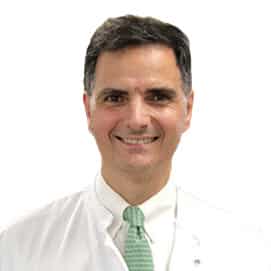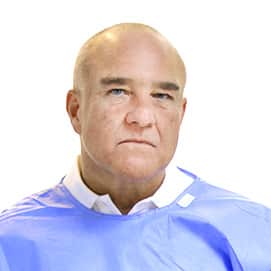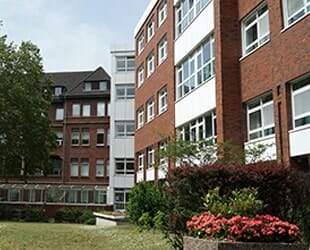The Oncology and Hematology Clinic boasts 50 inpatient beds and specializes in diagnostics (including early diagnosis) and drug treatment for various organ tumors (commonly known as solid tumors), connective tissue carcinomas, bone tissue sarcomas, and diseases affecting the blood and lymphatic system (such as lymphoma and leukemia).
Interdisciplinary tumor treatment is a crucial aspect of the clinic's approach, involving collaboration among specialized doctors, as well as providing socio-psychological support and ongoing patient observation. The clinic's management and staff are dedicated to offering patients the latest and most effective therapeutic methods available in the fight against cancer. To achieve this goal, the clinic actively participates in significant national and international research studies and also develops its own treatment protocols.
Drug treatment of tumors (chemotherapy).
It is carried out with the help of intravenous infusions, tablets, using local or local therapy. At the same time, both classical drugs that destroy malignant cells (cytostatics) and hormones similar to human hormones (antihormonal therapy for breast cancer or prostate cancer) are successfully used. An increasingly important method in tumor therapy is bio-chemotherapy, which involves the targeted action of antibodies or substances that reduce the activity of enzymes against cancer cells. This halts their division process or leads to their complete destruction or death. Some malignant neoplasms respond to cytokines, which act as their own mediators in the treatment process.
Combined chemo-radiation therapy
In cases where the tumor's location or extensive presence in a vital organ makes it difficult to remove surgically, doctors use a treatment called combined chemo-radiation therapy. The goal of this approach is to shrink the tumor to a size where surgery becomes possible. To carry out this combined therapy, the clinic has advanced equipment with high-energy beams and precise methods, developed through years of experience, to effectively treat the tumor.
Locoregional therapy.
The joint work of specialists from clinics of radiology and interventional radiology, as well as doctors of all specializations, makes it possible to create conditions for the direct supply of the drug through a vessel supplying blood to the affected organ (chemoperfusion, chemoablation). Thus, the required high concentration of the substance is achieved directly in the affected organ or place. In case of problems caused by a tumor (for example, squeezing of blood vessels, germination into neighboring organs and tissues, single deep-seated liver tumors or metastases, etc.), local destruction of the tumor by means of a laser, cold or heating is also additionally used.
Palliative symptomatic care and supportive (adjuvant) therapy.
This is a therapeutic technique aimed not directly at eliminating the tumor or malignant cells, but at maintaining or improving the quality of life. First of all, this includes:
- treatment of pain syndrome through a strictly calculated dose of medications that reduce the pain threshold,
- stimulation of hematopoietic processes,
- prevention and treatment of infectious complications,
- taking medicines for nausea or vomiting,
- restoration of the lost function of the organ (restoration of the patency of the esophagus, respiratory tract, urinary tract).
Head of the Clinic of Oncology, Hematology and Palliative Medicine
Head of the Clinic for General, Visceral, Thoracic and Endocrine Surgery
Head of the Clinic for Radiation Therapy and Radiological Oncology
Video
Request appointment
Useful links
Photo gallery












